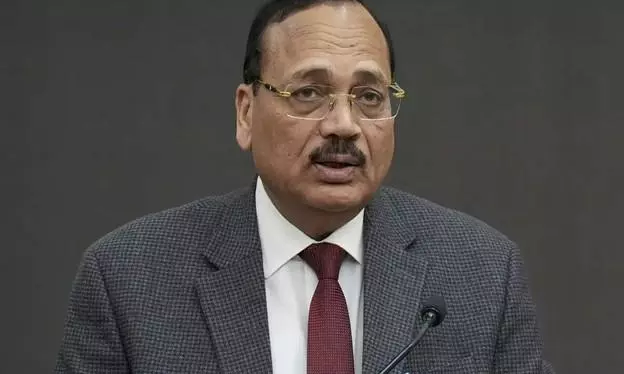
Justice Surya Kant brings to the country's top judicial office a wealth of experience spanning two decades on the bench, marked by landmark verdicts on abrogation of Article 370, free speech, democracy, corruption, environment and gender equality
Justice Surya Kant to be next CJI on November 24; CJI Gavai recommends name
The senior judge, known for verdicts on Article 370 and sedition law, will take charge on November 24 and will have a tenure of over one year till February 2027

Justice Surya Kant is all set to become the 53rd Chief Justice of India on November 24, as the current Chief Justice of India Bhushan Ramkrishna Gavai has recommended his name as the next CJI to the Centre..
Justice Surya Kant, the second senior-most Supreme Court judge after the incumbent CJI Gavai, will take over the top post after CJI Gavai's retirement on November 23.
CJI Gavai, who was sworn in on May 14 this year, recommended to the Union law ministry to appoint Justice Surya Kant as the next CJI, sources said.
Short tenure
Justice Surya Kant, who was elevated as a judge of the Supreme Court on May 24, 2019, would have a tenure of over 1.2 years as the CJI. He is due to retire on February 9, 2027.
Also read: SC wary of contempt proceedings in the case of shoe-throwing at CJI Gavai
The retirement age of Supreme Court judges is 65 years.
The procedure
According to the memorandum of procedure, a set of documents, which guide the appointment, transfer and elevation of Supreme Court and high court judges, states that appointment to the office of the chief justice of India should be the senior-most judge of the Supreme Court considered fit to hold the office.
The Union law minister would, "at the appropriate time", seek the recommendation of the outgoing CJI for the appointment of his successor.
Conventionally, the letter is sent a month before the incumbent CJI retires on attaining the age of 65 years.
Meet Justice Surya Kant
Justice Surya Kant, born in a middle-class family on February 10, 1962, in Hisar district of Haryana, became a top court judge on May 24, 2019.
Also read: Katju advises judges to 'talk less' in court after shoe-throwing attempt on CJI Gavai
Justice Surya Kant brings to the country's top judicial office a wealth of experience spanning two decades on the bench, marked by landmark verdicts on abrogation of Article 370, free speech, democracy, corruption, environment and gender equality.
Justice Surya Kant was part of the bench that kept the colonial-era sedition law in abeyance, directing that no new FIRs be registered under it until a government review.
His orders
In an order that underlined transparency in the poll process, he nudged the Election Commission to disclose the details of 65 lakh names excluded from the draft electoral rolls after the Special Intensive Revision (SIR) in Bihar.
Justice Surya Kant is also credited with directing that one-third of seats in bar associations, including the Supreme Court Bar Association, be reserved for women.
He upheld the One Rank-One Pension (OROP) scheme for defence forces, calling it constitutionally valid, and continues to hear petitions of women officers in the armed forces seeking parity in permanent commission.
Justice Surya Kant was on the seven-judge bench that overruled the 1967 Aligarh Muslim University judgment, opening the way for reconsideration of the institution's minority status.
He was part of the bench that heard the Pegasus spyware case, which appointed a panel of cyber experts to probe allegations of unlawful surveillance, famously stating that the state cannot get a "free pass under the guise of national security."
Justice Surya Kant was part of the bench that appointed a five-member committee headed by former Supreme Court Justice Indu Malhotra to probe the security breach during Prime Minister Narendra Modi's 2022 Punjab visit, saying such matters required "a judicially trained mind."
(With inputs from agencies)

